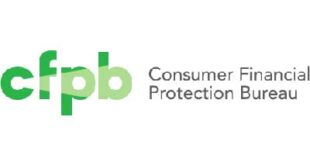The Federal Reserve Board on Tuesday released another report on debit card revenues and expenses and says it does not plan to propose changes to its controversial debit regulations implementing the Durbin Amendment in 2010’s Dodd-Frank Act.
Dodd-Frank requires the Fed to report on the debit card market every two years, and Tuesday’s report is the second such effort. The new report is based on a Fed survey of card networks and 131 debit issuers early last year, and it covers calendar year 2011. The Fed’s first report, which formed the basis of its Durbin regulations, looked at debit card costs and revenues for 2009.
The new report created a fresh opportunity for opponents in the intensely partisan interchange fight to take more potshots at each other—and the Fed. A merchant group, the Retail Industry Leaders Association, immediately blasted the Fed for permitting some of the biggest regulated debit card issuers, those with $10 billion or more in assets, to still collect nearly five times their average cost for authorizing and settling a debit transaction despite the Fed’s price controls that took effect Oct. 1, 2011.
“While the data proves that the reforms have protected small institutions, it reinforces retailers’ outrage that the Federal Reserve’s rule-makings are deeply flawed,” Bill Hughes, RILA’s senior vice president for government affairs, said in a news release. “The Federal Reserve’s unwillingness to revisit their flawed rules despite this compelling data is astounding and retailers will continue to use all means necessary to ensure the reforms are implemented as the law intended.”
The price controls set a per-transaction cap of 21 cents plus 0.05% of the sale in addition to another penny if the issuer takes fraud-prevention measures. That cap cut regulated issuers’ debit revenue by about 50%, but still was much higher than the Fed’s original proposal of a 7-to-12-cent cap.
The new report says issuers’ expenses for the authorization, clearing and settlement (ACS) of debit card transactions varied widely in 2011. The median issuer’s average ACS expense was 11 cents, but the biggest issuers’ costs were only 5 cents. Issuers at the 75th percentile had an average cost of 36 cents per transaction.
The Electronic Payments Coalition (EPC) representing card networks and banks noted that the Fed found that small banks’ and credit unions’ debit card interchange revenue actually has begun to decline despite their exemption from the Durbin Amendment’s price controls. The report says the average per-transaction interchange fee received by exempt issuers slipped 4% in 2011, from 45 cents to 43 cents. That was before before the Durbin Amendment’s so-called network-exclusivity and transaction-routing provisions kicked in on April 1, 2012. Those provisions, which gave merchants more freedom to route debit transactions to the networks of their choice, are likely to reduce exempt issuers’ interchange revenue even more.
The EPC once again blasted merchants for allegedly not passing on their reduced debit card acceptance expenses to consumers.
“The Durbin Amendment was bad policy from day one,” a spokesperson said in a statement. “It’s been more than a year, and consumers are still not seeing any of the savings they were promised. The Durbin Amendment has harmed consumers by forcing card issuers to eliminate free checking and other consumer benefits to make up for an $8 billion revenue loss. With today’s announcement, at least the Durbin Amendment wasn’t made any worse than it already is.”
In stating that it doesn’t plan to propose changes to its Durbin rule, the Fed said 67% of regulated issuers had average ACS costs below 21 cents in 2011. While the proportion was lower than the 80% of covered issuers with average ACS costs below 21 cents in 2009, the Fed attributed the change to the addition of first-time survey respondents, most of whom were foreign banks or other regulated issuers with very small debit card programs and high ACS costs. Issuers that responded to both the 2009 and 2011 surveys typically reported ACS costs were lower in 2011 than in 2009, according to the Fed.
The Fed also estimated that debit card fraud losses to all parties (merchants, cardholders, and issuers) totaled $1.38 billion in 2011, with an average loss of approximately 8 basis points per debit card transaction, down slightly from 2009.





